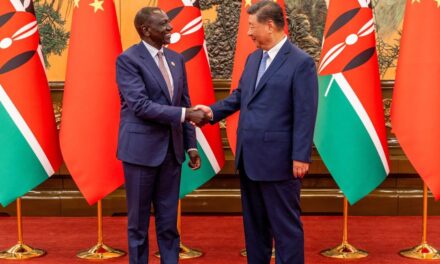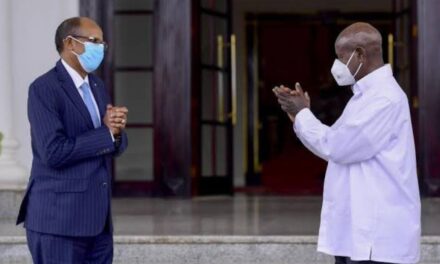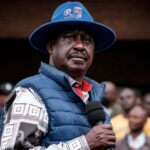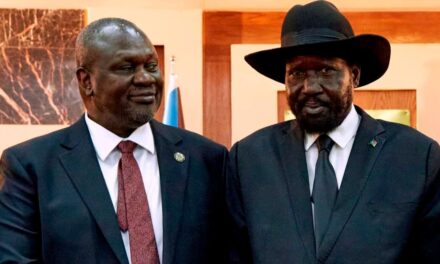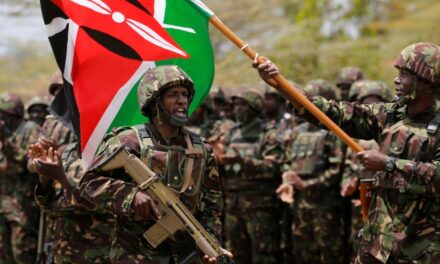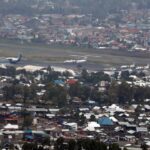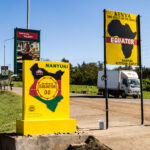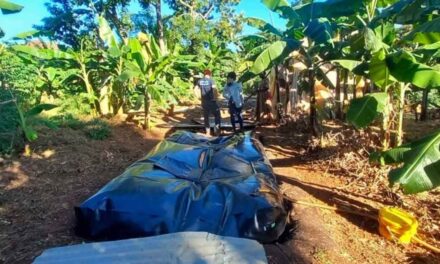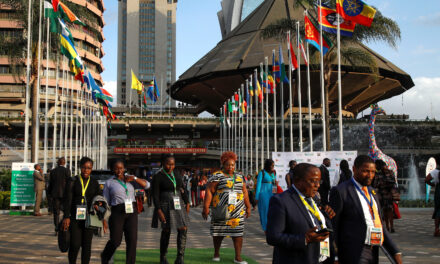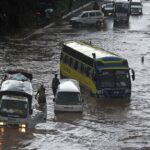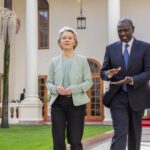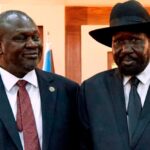
Kenya Warned UK Army of Harzadous Ammo Decades Ago
Posted by Phil Miller | Sep 24, 2023 | DELAYED JUSTICE

With politicians in Nairobi holding an inquiry into the UK’s military presence in Kenya, another family bereaved by British army negligence speaks out.

Kenya’s military privately rebuked their British counterparts over “lax” handling of ammunition years before it emerged that hundreds of civilians had been harmed by unexploded ordnance from UK army exercises.
As early as 1985, a Kenyan officer complained that “the British army is lax in their handling of ammunition and explosives”, according to a military report found by Declassified UK.
The unnamed officer registered his concern after a mechanic was blown up by British ordnance in Nanyuki, the garrison town 90 miles north of Nairobi where UK troops have a training camp.
The victim, 27-year-old Jaffer Mohamed, had a wife and four children. His eldest, Ali, is still traumatised from losing his dad at age nine. “When I see the British army in Nanyuki, I see my father dying,” he told Declassified.
Although Jaffer’s death was far from an isolated incident, it would take another two decades for the British military to publicly admit that more than a thousand Kenyans had been harmed by its unexploded ordnance (UXO).
These hazards are now being investigated by MPs as part of an inquiry into abuses by the British Army Training Unit Kenya (BATUK).
Committee chairman Nelson Koech has promised the probe will be thorough, saying: “Whether it dates back to [independence from Britain in] 1963, we have to get to the bottom of it.”
The evidence uncovered byDeclassified UKsuggests that much of the suffering could have been prevented decades ago had lessons been learnt from Jaffer Mohamed’s death in June 1985.
A long forgotten tragedy
“My father used to give the British army scrap vehicles to go and do artillery practice with,” Ali Mohamed said from his home in Nanyuki, where his family still runs a garage.
“When they finished the artillery firing they used to give the cars back and tell him he could keep the scrap,” Ali explained.
One day, the army gave the garage 900 shillings (equivalent to £130 today) to use a vehicle for target practice at Mpala, a ranch owned by a family of European settlers.
A formerly secret UK military report on the incident says the car was returned to the garage together with ammunition boxes, “contrary to [British army] standing orders”.
Jaffer was unaware of the danger. “He had no idea,” Ali said. “Because with scrap you only take metal and he was just dismantling the car to check the engine was there and see what he could sell as aluminium.”
“That’s when the blast happened,” Ali recalled. “There was something in there that hadn’t exploded on the firing range.”
Britain’s high commissioner, Leonard Allinson, said Jaffer “blew himself up by hammering a discarded mortar fuse, part of a scrap consignment.” An army report said: “The explosion was heard up to 2 miles away.”

Jaffer lost a hand and suffered severe stomach injuries before passing away soon afterward in Nanyuki hospital.
“I was with him that day,” Ali said. “It was Ramadan. We’d been fasting during the day. I came out of school and that’s when it happened, my father passed away.”
Ali still feels the loss. “It’s been terrible for us. Terrible. He was the one who was taking care of everyone in the family. He was my best friend.”
“He was young, handsome and good looking. My mum tells me I look just like my dad now,” Ali added, with a slight laugh.
RELATED
Kenya to Probe Alleged Crimes by British Army in Laikipia
His father’s death followed another mishap that year in which plastic explosives went missing from a British army exercise at Mpala.
This prompted a Kenyan military intelligence officer to tell UK officials: “Considering both incidents it seems that the British army is lax in their handling of ammunition and explosives”.
Norman Ling, a British diplomat, noted: “Our defence relations with Kenya have taken a knock in recent months, particularly over the Nanyuki incident in which a Kenyan Asian was killed by an explosion caused by ammunition left behind after a British army exercise.”
However others in authority did not express concern. Files state that Kenya’s chief of military intelligence “was very relaxed” about the death.
RELATED
Kenya warned British army about dangerous ammunition decades ago
Your support empowers us to deliver quality global journalism. Whether big or small, every contribution is valuable to our mission and readers.





